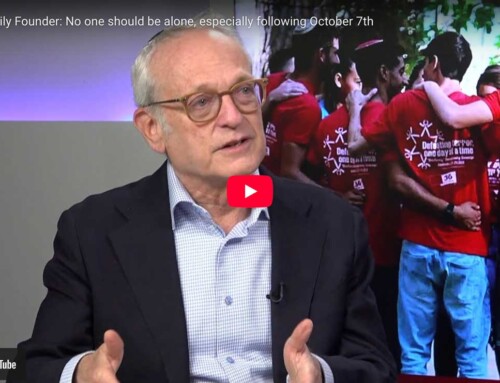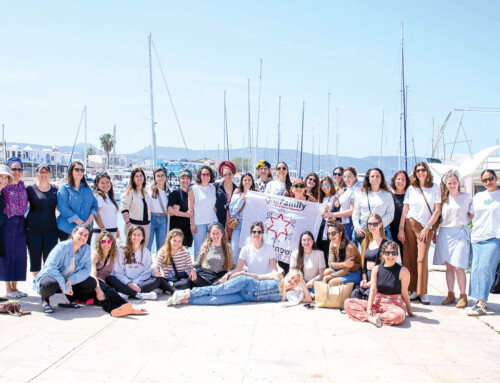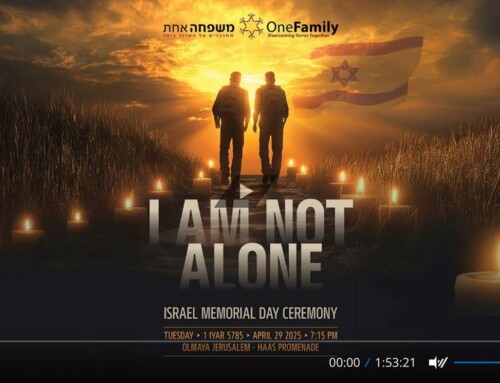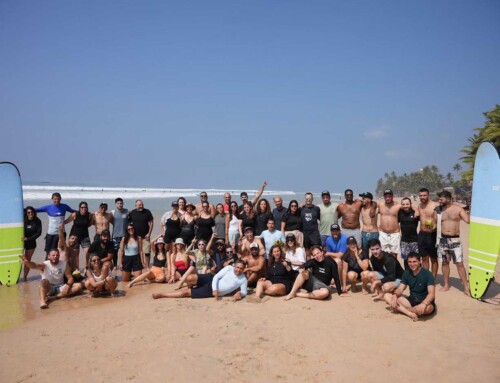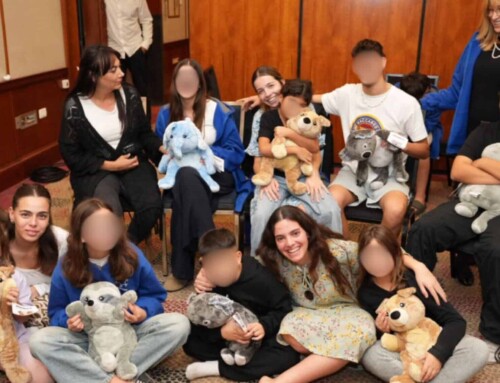Original Source: Article published in The Jerusalem Post – By: Sarah Gruen, Judy Siegel-Itzkovich

Yad Sarah volunteers have initiated phone calls to people who live alone to find out if they need anything.
As rockets continue to hit the South, organizations as well as individuals are offering help to families living under fire.
People across the country have taken to social media to offer home hospitality to people looking to escape the attacks. One Facebook group, “Hosting Families from the South,” began in 2012, the last time the barrages from Gaza came en masse. Starting on Tuesday, group members began to one again open their homes to those in need of respite.
Between Tuesday and Thursday, the group doubled in size, and offers continue to pour in.
Numerous other organizations have also offered support to victims. Magen David Adom bolstered its professional and volunteer staffers to cope with any injuries or wounds on the home front. The first-aid organization went on its highest alert level ever over the weekend. MDA is fully coordinated with the security forces, including the Israel Police, local authorities and relevant government ministries.
It has also increased its blood donation collections. More information is available at 1-800-400-101 and at www.mdais.org/ dam. MDA had updated its smartphone application to include the IDF Home Front Command’s advice for giving first-aid in the event of burns, hemorrhaging, trauma and so on.
The voluntary rescue organization United Hatzalah is urgently seeking an additional 100 bullet-proof vests and helmets for its volunteers in the South so they do not endanger their lives as they save others.
Yad Sarah, which lends out medical equipment and performs services around the country for the elderly, disabled and lonely, said that almost all its branches remain open, and its Nechonit service to take the wheelchair bound to medical institutions has been bolstered. Call *6444 for help. A special team has been set up to help residents of the South.
In addition, Yad Sarah volunteers have initiated phone calls to people who live alone to find out if they need anything.
OneFamily, an organization dedicated to working with victims of terrorism, has offered services for Israelis in areas near the Gaza Strip and families that have suffered from terrorism in the past.
“Sirens ring at all times of day and night,” OneFamily’s southern coordinator Pini Rabinovitz said. “It is terrifying.”
“If the situation continues to escalate our staff will begin a triage to call each and every previously injured family asking for what they need,” another OneFamily coordinator said.
Like with the concerned Facebook users, OneFamily can provide food, medicine and even places to stay outside the South if families need it, said Rabinovitz.
OneFamily is in the early planning stages of establishing a therapeutic retreat and a children’s day camp to “provide an opportunity for families to regroup, relax and have a few days without sirens and rockets.”
Demand for emotional support is at an all-time demand.
Adrienne Hersh of Emotional First Aid by Telephone and Internet (ERAN) says that her organization has seen an increase of the need for emotional guidance.
“In last 40 hours, we’ve had a rise of 20 percent in calls, mostly from teens and children,” Hersh said.
The Interdisciplinary Clinical Center at the University of Haifa has opened a hotline to help people suffering from anxiety. The phone line is manned by psychologists and psychotherapists who advise how to cope with anxiety, disquiet and sleep problems, how to help young children cope and how to deal with memories from previous military conflicts. One may call (04) 828-8622 between 8 a.m. and 8 p.m. or leave a message that will be answered promptly. The center offers clinical communications, psychotherapy and occupational therapy services to people in the North.
The Schneider Children’s Medical Center in Petah Tikva offered free psychological counseling for children suffering from anxiety.
The experts can be reached at (03) 924- 4955.
Both OneFamily and ERAN have taken advantage of technologies to improve communication with victims in need of emotional support.
“We are introducing a new SMS service where through which they can contact us,” said Hersh.
OneFamily has similar SMS systems in place. “Families are in touch with each other and with
For Avia Zaguri, a woman living near Gaza whose father was wounded by a rocket years ago, the support received from OneFamily has been “amazing.”
“Now that there are rockets coming from Gaza, OneFamily continues to provide emotional support,” Zaguri said. “They call every time there is a rocket attack to talk to us, to talk to my dad.”
Many southern Israelis like Zaguri are still worried about what will come next.
“I’m terrified, not for me, but for my family. My younger brother sleeps with our parents because he’s so scared,” Zaguri said. “Still, I stay strong.”

